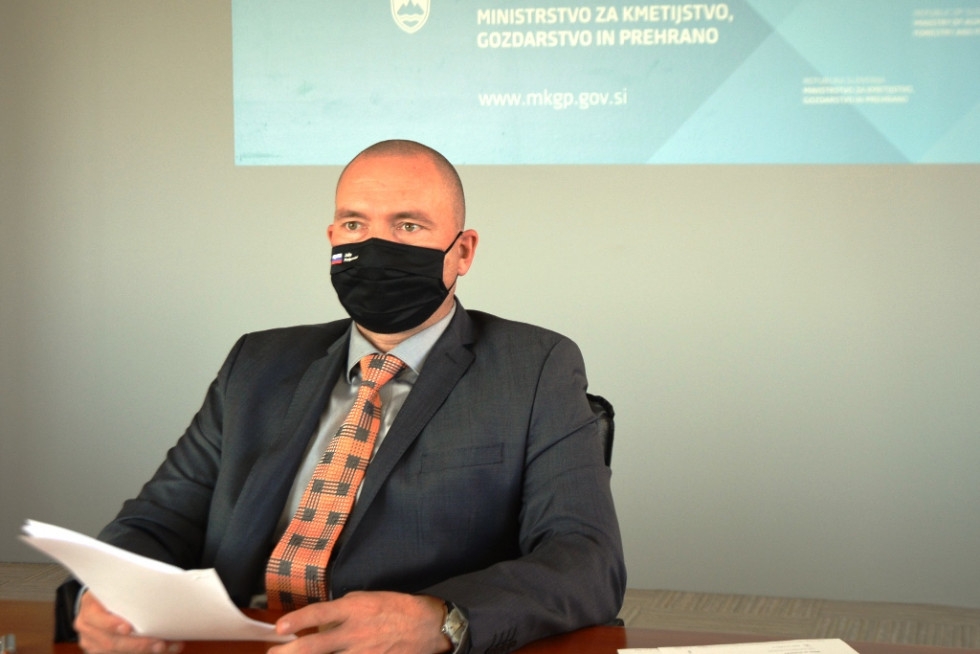This morning, the Minister of Agriculture, Forestry and Food, Dr Jože Podgoršek, participated in the General Fisheries Commission for the Mediterranean (GFCM) High-level Conference, taking place in the form of an audio-video conference. The topics of the Conference included the preparation of a new strategy for fisheries and fish farming in the Mediterranean and in the Black Sea.
Participating in the event were also Dr Roland Kristo, President of the aforementioned General Commission, Professor Manuel Barange, Director of the Fisheries Division of the UN Food and Agriculture Organisation (FAO), and Mr Virginijus Sinkevičius, M.A., European Commissioner for the Environment, Oceans and Fisheries.
Participants in the audio-video conference exchanged views concerning the new strategy for fisheries and fish farming in the Mediterranean and in the Black Sea. They further exchanged views on priority tasks for revitalizing regional impetus at highest government level and for resuming political commitment to fulfilling the GFCM long-term goals in line with the “2030 Agenda for Sustainable Development”. To leaders in the Mediterranean and Black Sea region, the new strategy for fisheries and fish farming in the Mediterranean and in the Black Sea should provide a platform for exchange of opinions on how to ensure the sustainability of fisheries and fish farming in the region, including the incentives for further development of the areas which are still in need of progress, and including the necessary responses of recovery in the region, in the Covid-19 epidemic aftermath.
Minister Dr Jože Podgoršek pointed out in his address that the conference was taking place in the times characterised by a severe health crisis of an unforeseeable end or consequences. “We know that the crisis has affected all on this Planet, and consequences are becoming visible in fisheries as well. Thus, this Conference is taking place at the right moment as it is giving us the opportunity of proposing solutions to mitigate the consequences of the Covid-19 epidemic crisis in the fisheries sector”. The Minister highlighted that Slovenia was highly committed to sustainable fish stock exploitation and to marine environment conservation. As put by the Minister, the current interim GFCM strategy that is bound to expire by the end of this year has affirmed itself as a well-designed strategic document with the right priority tasks. “Numerous principal measures of particular priority tasks have already been accomplished, whilst certain others are still pending and open for solution” pointed out the Minister. “I would propose to retain the same priority areas and to complete the remaining measures and, within the same priority tasks, to define those new measures, which shall address the most burning issues that we are currently facing, namely, the climate change, pollution and, in particular, the current COVID crisis. GFCM, however, should keep focusing on specific characteristics of the small fisheries sector.”.
General Fisheries Commission for the Mediterranean (GFCM) is a regional organisation for fisheries management in the Mediterranean and in the Black Sea, which comprises 24 member states, 19 whereof are of the Mediterranean area, and 3 whereof are of the Black Sea area (Slovenia has been a GFCM-member as from 2000, and the EU is the only economic organisation as a GFCM-member). In the Mediterranean and Black Sea basin, GFCM is competent for managing all fish species, excluding the tunas (the Thunnini species), which are managed by the International Commission for the Conservation of the Atlantic Tunas (ICCAT).

